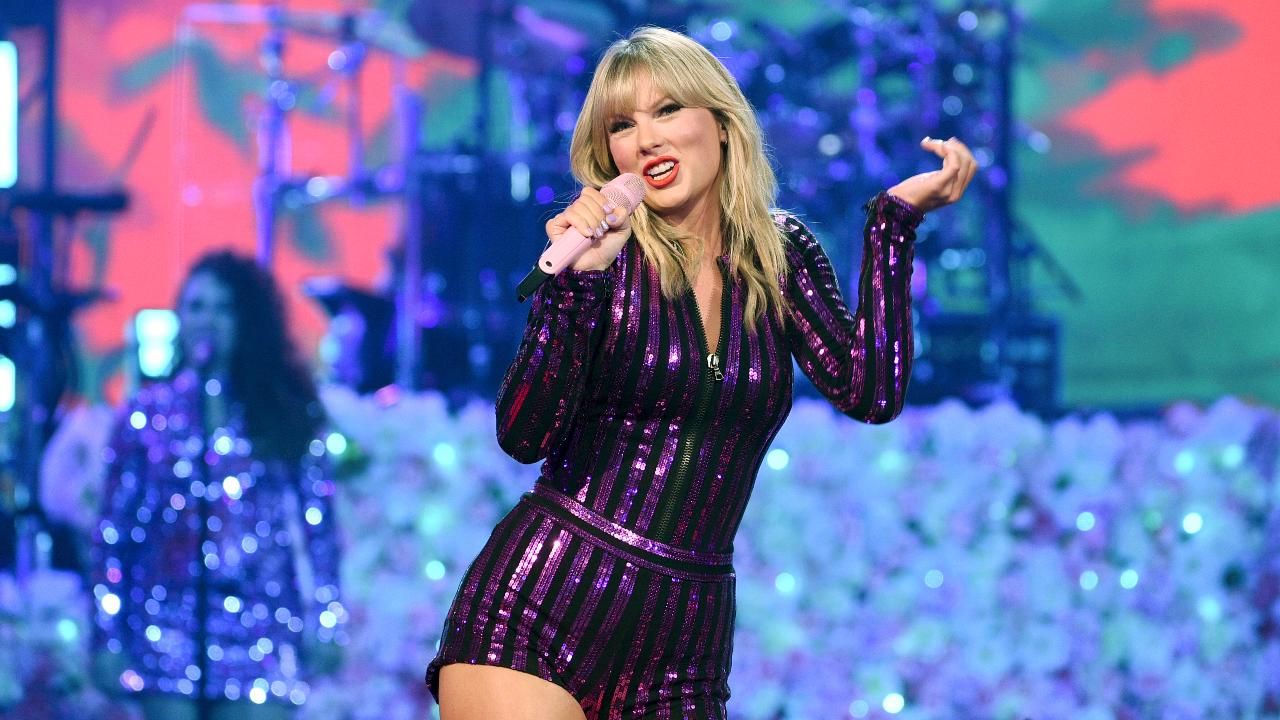Motley Crue: 'The Dirt' on why the reunion tour will rake it in
How Netflix enticed the bad boys of Motley Crue to tour again
The members of Motley Crue, the bad boys as notorious for their drug-fueled debauchery as their string of ‘80s hard rock hits such as “Dr. Feelgood,” “Girls, Girls, Girls” and “Home Sweet Home,” were on the set of “The Dirt,” the Netflix biopic about the LA band’s wild ride.
| Ticker | Security | Last | Change | Change % |
|---|---|---|---|---|
| NFLX | NETFLIX INC. | 82.20 | +1.33 | +1.64% |
When they saw the camaraderie between the actors portraying them, it reminded them of the brotherhood they had lost. A few years earlier, when they wrapped up their farewell tour on New Year’s Eve 2015, Vince Neil, Nikki Sixx, Tommy Lee and Mick Mars didn’t even say goodbye to each other, said Allen Kovac, who has been managing the band for 26 years.
“Tens of millions of people saw the film,” Kovac, who was a producer of the film and is CEO of Better Noise, the band’s record label, tells FOX Business. “I think the data is equal to ‘The Irishman.’”
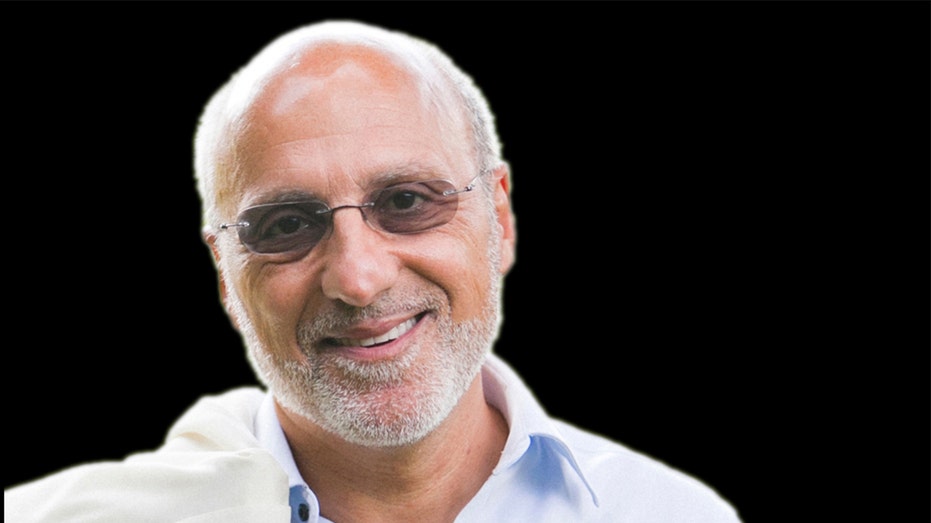
Allen Kovac (Better Noise Music)
Streaming of the band’s music increased more than 350 percent, according to Better Noise, and the majority of its fanbase shifted from the 45- to 58-year-old demographic to 18 to 45, Kovac says.
That spark among the foursome and a renewed interest in the band thanks to “The Dirt” is why the band blew up their cessation of touring contract in a viral video last month and announced “The Stadium Tour," a reunion hitting the largest venues in the U.S.: football and baseball stadiums.
Motley Crue will be joined on tour by Def Leppard, Poison and Joan Jett and The Blackhearts. When the summer dates were announced, a third of them sold out, and six more shows will be announced soon, possibly next week, Kovac says.
DEF LEPPARD DRUMS FOR VETERANS
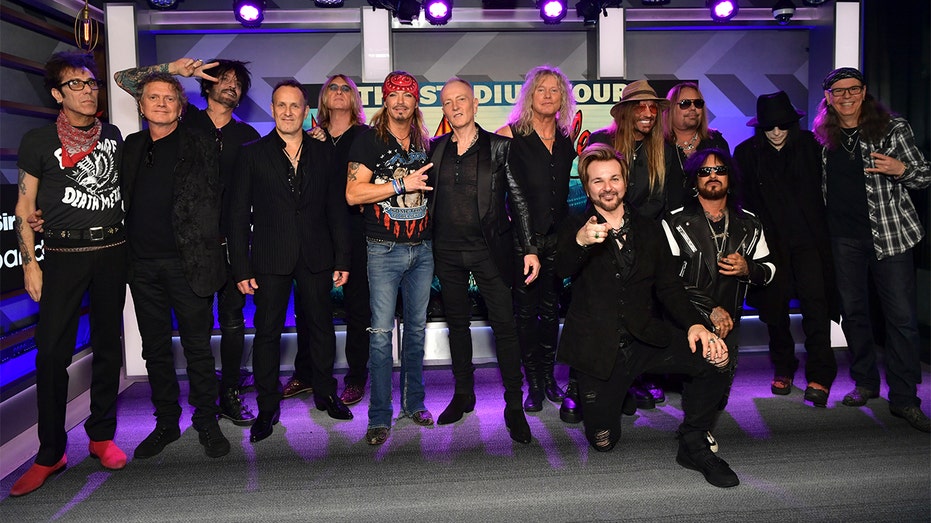
Photo by Emma McIntyre/Getty Images for SiriusXM
| Ticker | Security | Last | Change | Change % |
|---|---|---|---|---|
| AMZN | AMAZON.COM INC. | 210.32 | -12.37 | -5.55% |
“The most relevant statement is that global film, with a global internet and global streaming, is the future,” he says. “When I go to Amazon, I can see a Motley Crue book, I can see a Motley Crue documentary, I can see a Motley Crue live show, I can see the fact that they got a film, they got CDs out and they got streaming and they’re selling merchandise. So to me, managers and artists should move into 2020 and out of 1999, and so should record companies. You can’t make music in quarters. You can’t develop an artist in a quarter. It takes a couple of years, sometimes a lot more.”
Don Jamieson, the comedian who co-hosted VH1's "That Metal Show," where Motley Crue guitarist Mars in 2014 said he'd give out free tickets if the band reunited, thinks the 2020 tour will "do great numbers."

Don Jamieson (Photo by Kevin Estrada )
"The sum is bigger than the individual parts with all those bands out together on a fun summer tour," Jamieson tells FOX Business. "So I wouldn't go by strict numbers of what each band has sold collectively."
In the anything-goes ‘80s, Motley Crue’s misadventures were in some cases criminal, fatal or nearly fatal. Singer Neil served jail time for manslaughter in the 1984 drunken-driving death of a fellow rock musician. Other arrests followed. Bassist Sixx named his memoirs “The Heroin Diaries” and was declared clinically dead after one of his many overdoses, and drummer Lee, once married to Pamela Anderson, still lands in the tabloids from time to time.
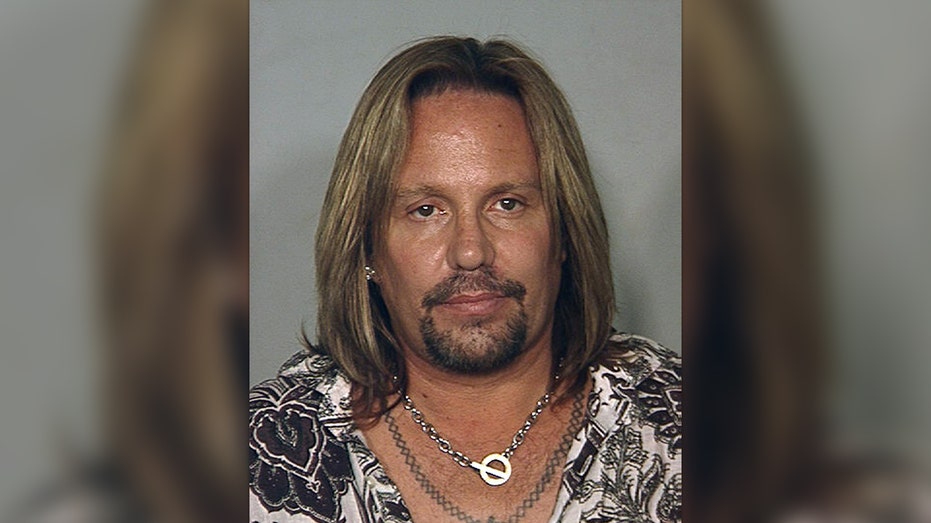
Vince Neil mugshot
“Alcohol, drugs and ego” were the biggest challenges Kovac had to navigate as the band’s manager in those days. “What changed everything was the board of directors/shareholders meetings where we get together twice a year and we’d be able to communicate and get over the challenges. Do I think it would have worked without it? Absolutely not.”
Neil has been criticized online for a perceived diminished singing ability and weight gain. For most of his career, Mars has been dealing with a chronic form of arthritis that led him to undergo a hip replacement, and Sixx and Lee have dealt with substance abuse. Asked about insurance contracts connected to the tour, Kovac says, “They’ve never canceled a show. If you’ve never canceled a show, you have a Triple A insurance rating.”
“Some of them are working with a trainer, some of them are working with a nutritionist to make themselves the best they can be,” he adds. “The greatest insecurity for an artist is: Is anyone going to care about my music? Is anyone going to buy a ticket? We were in November when the discussions were happening, and these guys were already into regimens of how they get ready for a tour.”
As for the criticism of Neal, he says, “Let’s see what Vince sings like and looks like when the tour goes out.”
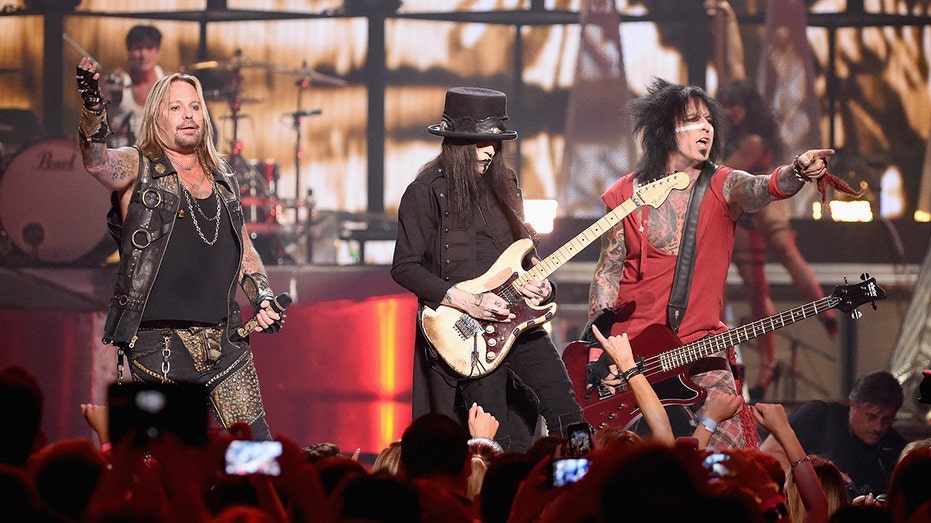
Motley Crue performs on Sept. 19, 2014, in Las Vegas. (Ethan Miller/Getty Images for iHeartMedia)
Jeff Dorenfeld, a professor of music business and management at Berklee College of Music, laughs when he’s asked about the amount of money that will be made by the band, promoter Live Nation and the venues: “It’s serious,” he says.
"You start calculating the grosses for 50,000 people a night, it's a lot of money. In the millions," Dorenfeld tells FOX Business. "The acts can get somewhere between 50 and 60 percent of the gross."
It is unclear how much "The Stadium Tour" can earn, but for comparison's sake, Motley Crue grossed $42.1 million and Def Leppard grossed $54 million on their respective tours in 2015.
Figuring 20,000 cars in a stadium parking lot at $50 a pop, “you’re talking about a million dollars before you even walk into the stadium,” Dorenfeld, who managed the rock band Boston and worked with Ozzy Osbourne and Sammy Hagar, tells FOX Business. That money in most cases would go to the venue unless a deal is made for the artist to take a cut.
“There’s not a lot of revenue at stadiums [for sports compared to concerts], so if you’re one of those acts and you’re going to sell it, the promoter can come in and negotiate deals based on all of that,” he says. “If we look at all of those pieces, the concessions, the parking, the fact is those things won’t exist without Motley Crue doing the show. Now we look at the deals on the side of Motley Crue, they understand that and Live Nation understands that.”
A Live Nation representative said no one from the entertainment giant was available to speak to FOX Business for this story.
| Ticker | Security | Last | Change | Change % |
|---|---|---|---|---|
| LYV | LIVE NATION ENTERTAINMENT INC. | 140.87 | +2.63 | +1.90% |
While musicians have bemoaned the death of the record industry, the live music sector is booming. In fact, Dorenfeld says the concert business is doing better even when compared to 2015 when Motley Crue appeared to call it quits.
“It’s because pop and hip-hop have become so big, and it wasn’t like that before,” the professor says. “And then we have all the classic rock and all those acts that can still do their share. It’s bigger, it’s more, the ticket prices are much bigger and the productions are much bigger.”
JENNIFER LOPEZ, SHAKIRA TO HEADLINE SUPER BOWL HALFTIME SHOW
Kovac, though, says the narrative that pop, hip-hop and EDM are dominating streaming, tickets and merchandise is a “misnomer.”
“Goldman Sachs has a document speaking to that, and they make that statement, and I think that’s why they're bankers,” he says. “If you ask Live Nation or [promoter] AEG where they make the predominant amount of money, it’s rock and country and alternative. They transcend borders. They don’t just play Capital City, they play secondary and tertiary markets. Streaming-wise, hip-hop and pop artists definitely do better in the first six months to a year, but as time goes by they don’t build a catalog.”
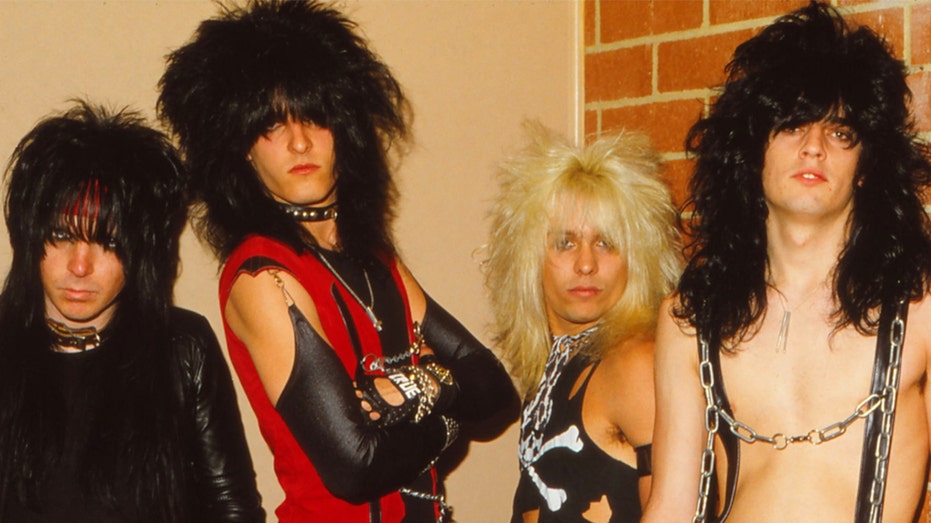
Motley Crue, in the band's second visit to the city, poses backstage April 19, 1982, in San Francisco. (Randy Bachman/Getty Images)
The savviest move for Motley Crue might have been foregoing a jaw-dropping sum to own the masters to its catalog – a hot-button issue now as pop star Taylor Swift feuds publicly with her record label.
“When you look at Motley Crue, they’re one of a unique set of artists that own their own masters,” Kovac says. “They decided they would agree with me as opposed to their lawyers and business managers and pay their former record label back $10 million of the $12 million they were owed so they can own their masters and use their masters with books, tickets and films to broaden their base globally. It takes courage to give up eight-figures. It takes courage to try new things.
“Taylor Swift is very upset she doesn’t own her masters... Did she buy those masters? No. ‘I’m Taylor Swift and I deserve my masters,’ and the media is not really covering that. She’s also selling a lot of music because she’s talking about a business deal. Her audience doesn’t want to hear about a very rich and successful artist upset that she doesn’t own her copyrights. That should have been a business transaction. Either her advisers gave her bad advice or she didn’t listen.”
GET FOX BUSINESS ON THE GO BY CLICKING HERE
It may seem unlikely that a band like Motley Crue, whose biggest-selling album, “Dr. Feelgood,” came in 1989 and hasn’t had a platinum-selling original release since then, instead of a polished pop act, might be leading the charge into a new way of doing business. But Kovac says "hip-hop and pop is short-term, quick-gain that is manufactured by the same producers" while what some call "legacy artists" like Motley Crue become the "soundtracks to people's lives."
For Jamieson, the heavy metal-loving comedian, Motley Crue has been part of his personal soundtrack for decades. He says he’ll go to at least one of the shows next summer.
“I think there’s going to be a whole new generation of kids who are going to bond with their fathers over songs about strippers and booze and drugs for sure,” he says.




















